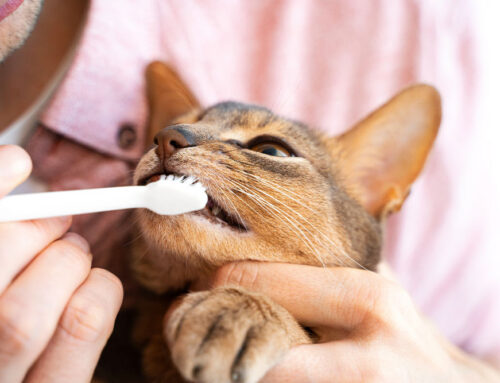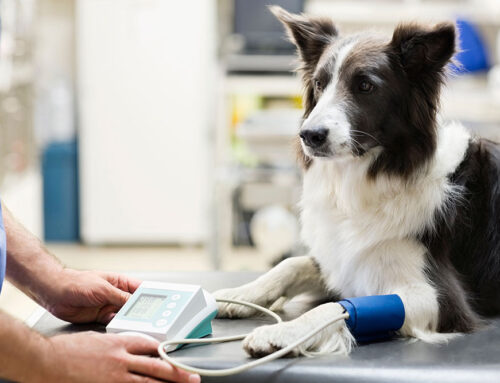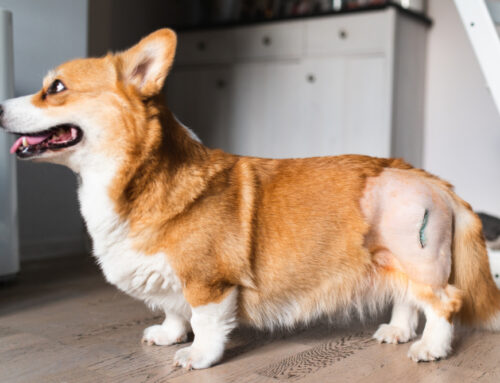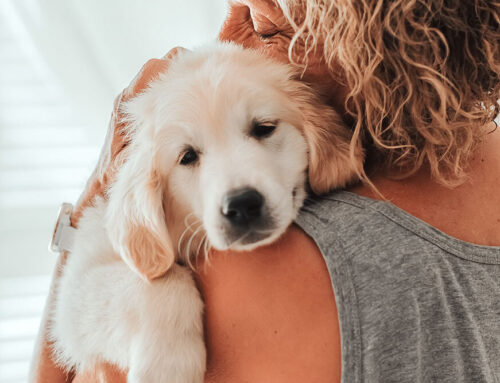The dog days of summer are here, and as the mercury rises to its yearly peak, the weather practically begs you to slow down, relax, and enjoy some hard-earned R&R with your friends and family, whether they have two legs or four. But, before you make any plans, consider how the year’s hottest weather will affect your furry family members.
Fun in the sun comes with risks, and nothing spoils a day faster than a pet emergency. Following is our list of the top five hot-weather health hazards for pets.
1: Heatstroke in pets
Heatstroke, or hyperthermia, occurs when pets are exposed to hot, humid conditions and cannot adequately cool themselves. When the temperature is high, your pet’s body temperature can soar to 106 degrees or higher. Elevated body temperatures can trigger inflammatory processes that can affect several organ systems and eventually lead to coma and death.
Your pet’s initial signs of distress in hot temperatures may be subtle, such as panting and anxiety. He may pace as he starts to panic about the temperature, and signs may progress to:
- Disorientation
- Increased salivation
- Collapse
- Discolored or dark red gums
- Bloody diarrhea
- Seizures
Never leave your pet unattended in the car in the warmer months, even with the windows cracked. Heatstroke happens quickly in enclosed spaces like cars, because there is no exchange of fresh air and inadequate ventilation. If you have errands to run and you can’t take your pet into the store, it’s safer and kinder to leave him at home.
Heatstroke can occur in the back yard, too, and you must always provide plenty of shade and fresh water for your pets when they are outdoors. If your pet is obese or geriatric, or a brachycephalic breed with a flattened nose, watch him closely because keeping cool is extra difficult for these pets.
If you notice your pet struggling in the heat, immediately take him to a cool area, give him cool water, and call or text us for advice.
2: Pets’ paws and hot pavements
Before you head out for a walk with your favorite four-legged companion, check the temperature of the road and sidewalks. If they are too hot for you to walk on with bare feet, they will be too hot for your pet, too. Painful thermal burns on pets’ foot pads are a common injury in the hot weather.
Also, be aware that hot sand can pack a double punch—it can cause thermal burns, as well as friction burns if your dog plays catch and slides across the sand to fetch an errant throw.
These injuries usually heal nicely without specific treatment, but if your pet’s foot pads are blistered or bleeding, you should bring him to our clinic for an exam. Pain medication will likely be in order, and some pets require bandaging or antibiotics.
3: Dogs can drown
Pools, beaches, and lakes provide much-needed relief from the heat, but they can also be dangerous for your dog. He may love to swim and be a strong swimmer, but never let him swim unattended. Keep in mind that a near-drowning episode also can be life-threatening, as some dogs succumb hours later to pulmonary edema, or fluid collection in the lungs.
4: Barbecues are no place for pets

Summers are perfect for outdoor parties and barbecues, but play it safe and leave your dog at home, because the food at such parties can tempt the most stoic of dogs, and many barbecue foods can be life-threatening for pets.
- Grilled meats can be higher in fat than your pet’s normal diet, and loading up on fatty treats can wreak havoc on his gastrointestinal (GI) system. Vomiting and diarrhea will quickly ruin any party. Fatty meals can also predispose your dog to pancreatitis, a serious medical condition often requiring hospitalization.
- Many foods that people consider summer staples can land your pet in the emergency clinic with a GI obstruction. Ingested corn cobs and peach pits can be too large to pass through your pet’s intestines, causing a life-threatening blockage. Ensure that kebab skewers are safely discarded, too, because these can puncture delicate GI tissues.
- Not all people foods are safe for pet consumption. The long list of foods toxic to pets includes barbecue favorites such as grapes, onions, alcohol, and the sugar substitute xylitol. If your pet has ingested only a little of these foods, call us right away. If we are unavailable, contact the Pet Poison Helpline.
5: Protect your pet from parasites
Warmer weather brings an increase in external parasites, like fleas, ticks, and mosquitoes, that not only cause uncomfortable itchiness and skin infections, but also carry infectious diseases. Ensure your pet is protected with monthly preventives against parasites and heartworm disease. If you’ve spent a day together enjoying the great outdoors, check your pet for ticks before you tuck him into bed at night.
Summer is one of our favorite seasons, and we know it wouldn’t be as much fun without your four-legged family members by your side. If you need to renew your pet’s parasite prevention, or you have concerns about how your pet is handling the heat, we’re only a phone call or text away.








Leave A Comment